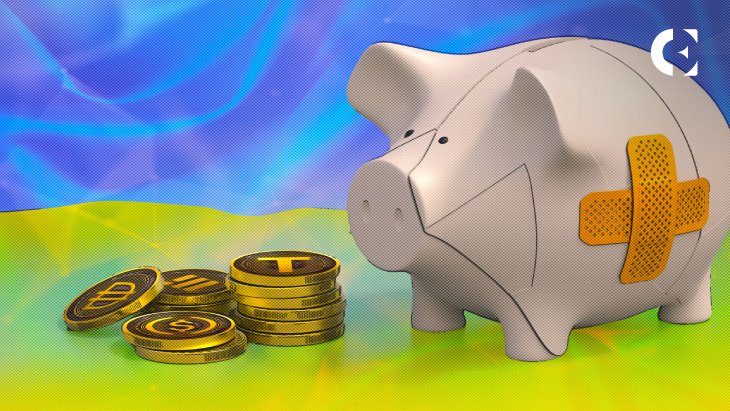Understanding Money Markets: A Key Component of the Financial System
Money markets contribute to the financial system that provides grounds for short-term borrowing and lending. Without this form of money circulation and the possibility to liquidate assets quickly, long-term financial markets would not run smoothly, and the economic performance would suffer. This article covered the general characteristics of money markets, major stakeholders, instruments, their functions, and influence on the whole financial market.
What Are Money Markets?
In layman’s language, money markets are the platforms that trade in short-term debt investments. Money markets are organized exchanges where participants can lend and borrow high-quality debt securities and other low-risk, short-term securities whose original maturities are one year or less. The most liquid of all assets are usually money markets.
Examples include treasury bills, certificates of deposit, commercial paper, and repurchase agreements. Governments, banks, corporations, and other large institutions may utilize money markets to raise money for their short-term projects. However, money markets offer individual investors an opportunity to lend money for interest while little risk is guaranteed in return.
Key Participants in Money Markets
There are several key participants involved in money markets, each performing a specific role:
Banks and Financial Institutions
The key participants that use money markets to meets their liquidity needs and borrow and lend on excess reserves.
Corporations
The companies that make use of money markets to satisfy their short-term funding needs and requirements, often using the commercial paper.
Governments
Since they have to cover numerous short-term funding requirements, they issue T-Bills that could be bought. Investment Funds Money market mutual funds indeed purchase and own money market instruments and are an essential tool for the investors to participate in money markets.
Retail investors
It is not the best way and cannot be the major tool, these people have an opportunity to participate in the desired area with the help of money market mutual funds and the T-Bills and CDs in particular.
Key Instruments in Money Markets
Money markets help trade numerous financial instruments, which, by changing liquidity and prices, move their exchange rates and interest rates. These instruments include Treasury Bills (maturate from 4 to 52 weeks, not risky), Certificates of Deposit (safekeeping for interest, paid on maturating), Commercial Paper (for corporate survival cash), Repurchase Agreements (securities for a switch, short-term), Bankers’ Acceptances (bank-issued securities in trade). They are used and traded to facilitate a convenient flow model of finance.
Functions of Money Markets
Money markets serve several crucial functions in the financial system:
Money markets are critical parts of the financial system that perform functions vital for the proper functioning of the economy. They are responsible for lending and borrowing funds on a short-term basis, making them effective instruments for managing liquidity needs. Money markets perform several key functions.
They finance trade and industry by providing short-term funds for various activities related to domestic and foreign trade and for financing working capital. Money markets also allow financial institutions to lend their excess bank reserves by earning interest and ensuring liquidity. In addition, they support monetary authorities implement monetary policy by allowing central banks to control short-term interest rates.
Impact on Financial Markets
Money markets have a large impact on the entire financial market. The main aspects are as follows:
money markets contribute to the necessary liquidity for the functioning of financial institutions. They provide banks with the ability to maintain the necessary reserves and ensure financing on a daily basis. The main goal of liquidity in the banking market is to make sure that financial institutions can fulfill their obligations.
The Central Bank, for example, the Federal Reserve in the United States, uses this type of the market to implement the monetary policy. The influence of short-term monetary circulation results from whether a central bank supplies an economy with money or whether an economy needs more money. There financially can be too many or not enough money. It directly affects the short-term rate.
In addition, this market offers a low-risk investment tool for investors. Due to the minimum down payment and high liquidity, money market mutual funds are a good short-term investment in order to, for example, earn interest for a few months before buying more risk assets.
Impact on Cryptocurrency Markets
The role of the interaction between traditional money markets and digital assets emerge with the development of cryptocurrencies and the growth of blockchain technology. The potential outcomes that could emerge from this interaction are the improved liquidation and market performance of cryptocurrency markets, on which the market is still prone to negative sprays. Moreover, the acceptance of cryptocurrencies as part of the money markets would lead to the regulated trade and lending of cryptocurrency assets, significantly improving the consumers’ trust in the market.
Closing Thoughts
Lastly, money markets are essential to the world of short-term lending and borrowing and the need for liquidity in the 21st -century world. Savvy investors and sharp institutions should keep in mind the lessons in both classic and evolving financial settings. Although enhancing liquidity management, finding few apparent dangers to invest in, or taking advantage through a triumphant expedition into cryptocurrencies might all occur, money markets play a vital role in the broader financial community.






